Note on FormattingHi everyone. I really like researching and writing about stuff, but sometimes it's hard to cram in all the cool facts! So when you see writing like this, <-- click it. It is a link to a relevant subject I am using to further illustrate a point, or maybe it's just funny. Who know's what it will be! When you see bold, coloured writing like this and this, it means that nearby in the margin there will be a little tangent adding a bit more colour to that part of the story. WOW. If you had told 10 year old Michael, that the statue in “that park by the new grocery store” would polarise so many seemingly balanced individuals… He probably wouldn’t have cared, but he definitely would not have understood why.
Though, I do exaggerate. I can confidently assume Ed Corn is from England, and by all contemporary definitions, identified as a male. I know these things because of actions I have taken to learn them, but that’s as far as my yearning for knowledge on Cornwallis has taken me. I suspect most people living in Nova Scotia would be in the same pool as me. But WHOA momma, with the amount of people who have sprang out of the woodwork, speaking as if they just finished their thesis defense on “The Life and Times of Edward Cornwallis: A Man Steeped in Controversy” is enough to make your head spin. And it's just exhausting.
Edward CornwallisWell he was born in February of 1713 to the very regally named Charles and Charlotte. Charles was a Baron and Charlotte was a Lady (note the capital “L”) What do those titles mean for baby Edward? For starters, Edward’s Dad Charles, married up. The title Lady was only given to daughters whose fathers were Earls or higher, two full ranks above the title Baron.
At this time Prince William the Duke of Cumberland, a man not heralded for leniency and referred to as “the Butcher" allegedly ordered Cornwallis and his regiment to keep pursuing the defeated Jacobites. To plunder and burn, and take no prisoners. Cornwallis did this successfully enough to be acknowledged by the royals, though many of his men got far too enthusiastic during this “pursuit”. Needless to say, not a shining moment for humanity in North-Western Scotland, 1745 Perspective break! Two things: First, this is objectively bad. Cornwallis was in charge of a regiment that did some pretty bad stuff. We don’t know if he accepted the task begrudgingly, or with zeal. We don’t know if he attempted to exercise restraint as they were fulfilling orders to “burn”, or encouraged barbarism. Though after reading more into this Pacification, it would seem that due to the extent of it, at the very least Cornwallis must have personally allowed and witnessed much of the brutality. There aren’t a lot of positives to take from this. Second, I’m regretful to say this stuff happens all the time. Americans in Vietnam, Germans in Belgium, Japanese in China, Ottomans in Armenia, Belgians in Congo… This is just since 1900. What I’m saying is that sometimes individuals in groups act outside of orders and expectations, or basic human decency. It isn't always fair to attribute the actions of a group to the individual in charge. Although sometimes it is definitely fair. Group mentality is complex. Regardless of potential crimes against humanity, Britain was very pleased with the quelling of the Jacobites, and Cornwallis was named… (booming voice) Groom of the Bedchamber! Apparently it’s quite an honour. So what happens next for Edward? Well Britain waits until he’s 37, and had a bit of a rest from fighting catholics, and then appoints him as Governor of Nova Scotia. At this point in history, you don’t wilfully run and get elected as leader of Nova Scotia, the ruling monarch appoints you. Once Cornwallis heard his new appointment, I assume his response was something to the degree of “Which part of the Crown is Nova Scotia? Oh….That looks far.” One thing the Governor of Nova Scotia has to do, is (presumably) go to Nova Scotia. Around 1750, leaving Europe for Nova Scotia would have been high on no ones list. I can't help but wonder, why is Britain sending ANYbody to Nova Scotia, anyway?
That meant that Nova Scotia was entirely in the hands of the French and Mi’kmaq. Nova Scotia had been with Mi’kmaq since waaayyyyyy back, but from about 1600-1749 there was a relatively peaceful co-existence with the French settlers, characterised through the Acadian people. The French were encouraged to mix with native populations to foster a greater, stronger sense of settlement, but the protestants were all for hardcore segregation.
It’s estimated that the local population of Nova Scotia was in the realm of 15,000+ in the centuries past, but by the time Cornwallis arrived it may have been as low as 2,000. It is even said that a French ship, the “disease-ridden Duc’ D’Anville” that landed in Chebucto Bay (Halifax Harbour) 1746 may have been responsible for the deaths of one third of the native population.
One of the issues with setting up a city on the other side of the world, is finding the people who will set up a city on the other side of the world. So that’s why all immigrants who dared make the venture, were promised free land, food and protection for at least one year after arrival.
On top of this, it was not uncommon for European settlers to be attacked or raided and be scalped, almost to the point of the settlers being afraid to go outside. Cornwallis’ gardener, and gardener’s son were among the victims of these attacks. And we all know how important the relationship is between a man and his gardener. On Scalping... By many metrics, if not all metrics, today is the absolute best time to be alive in human history. A couple of these metrics are human death (or lack thereof) by violence, illness, or starvation. As much as media might mislead you to believe, fewer people are dying today as a result of violence than any other point in history. 100 years ago, The average Canadian died 20 years earlier than they do today. Although not in equal levels of improvement, worldwide accessibility to food and clean water has never been better. 300 years ago, if you made it to 50 without dying of typhus, scurvy, pneumonia, stab wounds, gunshots, AND managed to not starve? By god son, you’re doing well. The world used to be a much rougher and more violent place. This is all to say, that people had been doing the absolutely horrific act of scalping one another, long before Cornwallis was even born. Why? Because people don’t actually need a large amount of convincing to be terrible. At some point (I imagine), one group of people hated another group for some mundane reason. Members from both groups were incentivized to kill one another. How do I simultaneously terrorize my enemy, elevate my social status, prove to allies that I’m doing a good job killing, AND prove I deserve a calculable compensation? Scalping is one method.
Perspective break! Two more things: 1. To inflict pain and suffering is bad. But sure, there’s grey areas. A lot of people say WW1 didn’t have a great cause, but forces had to intervene in WW2 against such an obvious evil, pain and suffering was an unfortunate consequence. Grey area. 2. Bad is relative. In WW1 they had new, untested methods of fighting which turned out to be ghastly and inhumane, but only relative to conventional ways of killing each other. So they banned the methods deemed too inhumane. At one point or another in history (today included), different societies have all agreed that the following were/are acceptable:
Most of the people I know would agree these are all atrocious, deplorable acts that have no place in this world. But depending on the time and place in history, ALL of these things were acceptable. For the simple reason being, that’s all you’ve ever known. Famed figures revered in history are all victim to these antiquated ideas. For instance, philosophy heavy-weight Aristotle believed slavery was a necessary part of society. For millennia, public executions have been and still are well attended events. Forms of rape, pillage, and humiliation of defeated enemies are only beginning to be phased out. I’m sure everyone remembers one of the lowest moments for American military in 2004. Right now, there are many actions that are commonplace to us today that could be viewed as primitive, barbaric, and shameful by future generations. Perhaps raising animals in repulsive conditions for cheap hamburgers, will one day be viewed as barbaric. Maybe having such lopsided male to female ratios for all positions of power will be seen as primitive. Maybe it will be be thought shameful how we burn stuff we find underground to power cars and cities, without limit or consideration. Who knows what future generations will think of us. The point is, if EVERYBODY is doing it, conventional wisdom dictates that it must be acceptable. Thank goodness we seem to be moving in some right directions. Unfortunately, Halifax in 1749 was one of the places where the conventional wisdom deemed scalping as an acceptable part of war. Moral of this part of the story: be your own person, don’t blindly accept existing practices. Life in Early Halifax
It is on record that Edward said indicated his desire to be rid of all the Mi’kmaq, as his frustration with New World warfare began to mount. Subsequent actions make it seem that his intent was to “harass, annoy”, and not eradicate for sake of doing so. Such a statement seemed hyperbolic, but still, an awful thing to say. He was resistant to declare open war with the natives, because in his opinion, a war declaration would legitimise the Mi’kmaq as a sovereign people. Issuing this Scalping Proclamation treated them like British rebels (like the Jacobites) rather than a foreign entity. All in all, the claims against Cornwallis range from a few collected scalps, to dozens, to full genocide. I’m sure the truth is in there somewhere.
For a person who likely did not actively choose a career in military, or desire to start a city in the New World, I think I can objectively say by, city building standards, he had good results. In terms of overall impact on the native population, Cornwallis’ 3-year term seems to have not as much of an impact as I would have initially thought. The majority of the destruction was done before through disease, and after through displacement by the quickly growing Halifax. Life after Halifax
The Admiral who was in charge of the decision to retreat was held liable, and subsequently executed. Probably in front of a crowd. Ed and the others were released from arrest, even though they supported the retreat. A year later, he was involved with an “amphibious” attack on France's coastline. The men in charge deemed defences too strong, again, and they retreated. Though the decision wasn’t unanimous this time. It’s now 1761, Cornwallis is made Governor of Gibraltar, he gets married to Mary two years later, and dies 13 years after that. He might have died just before all of those model New England states started to rebel against the crown during the American Revolution. The very states early Nova Scotians had been deserting to.
Personally, I might pass judgement on someone based on the intent and results of their actions. I think plenty of people intend to do well, but I admire the people who actually do well. I get frustrated with people whose actions produce negative results, but I admonish those who intend negative results. Here are my approaches to passing judgement on Cornwallis.
Or in this case, scalps-for-a-scalp. An “eye-for-an-eye”, or Lex Talonis (by the way) is a friggin’ 4,000 year old way of thinking, and was Edward’s idea to implement in Nova Scotia. So violence and fear were met with the same. As a general tip, don’t employ the legal principles of a civilisation that ended 2,500 years before you were born. Even better, evaluate each situation independently and objectively! (please, do this) But his intent was to set up Halifax, I don’t believe he was ever in it for the long haul. His results were the beginnings of a city, and crippled relations with the local population. And of course, the lives of many innocent men, women, and children. Based on what was acceptable at the time, his appointment to setup a city, and his intent (perceived by me); he was a man of average character. “Well, we’re gunna hafta rename EVERYTHING now!”
For instance, when you learn that democracy’s origins actively excluded the majority of the population, namely slaves and women, you don’t say “THROW OUT DEMOCRACY IT’S TERRIBLE!”
Now that historians can appreciate a more complete picture of the human being Edward Cornwallis, maybe we should understand the individual, the circumstances that influenced him, and include the full story instead of suppressing part of it. Maybe I think it was an emotionally charged, hasty decision to take down the Cornwallis statue. After all, he is an essential character in the development of Halifax and it is difficult to debate that. Maybe a plaque should have been added to the statue, explaining the controversial actions for which Cornwallis is responsible and which are no longer acceptable. But more importantly, how his actions contributed to the circumstances we see ourselves in today.
Take a moment to appreciate this scale. For almost the entire time that Nova Scotia has not been covered with giant sheets of ice, the Mi'Kmaq have been here. There is 250 or so years of European fuelled culture in Halifax, and Halifax is celebrated as one of the oldest, most historic cities and cultures in North America. But whatever culture Halifax has developed, there was at least SIXTY times as much of it possessed by the Mi’kmaq and their ancestors before Cornwallis arrived. It boggles my mind that a history and culture this rich in narrative, is continually slipping away.
SourcesGoogle? I mean none of this stuff was hard to find. Most of my Cornwallis info I got here, here, and here. There is a great book online about the history of early Nova Scotia that was good for some facts, and the Halifax Military Heritage Reservation Society also has a extensive document on the subject.
Some of the websites I gleaned info from, gleaned their info from books like Cornwallis: A Violent History, The Lion and the Lily, and The Founding of Halifax: Duc D'Anville, Governor Cornwallis, Captain John Gorham. All of these are available at the library.
5 Comments
Donald MacDonald
2/14/2018 02:11:28 am
Michael, as always I enjoy your writing. The figure of Edward Cornwallis has certainly become a polarising one in Nova Scotia. As you mentioned I don't know if the mores of our present time should be applied to the historic because if they were many of history's great people would be discovered with flaws and brought down. (George Washington, the slave owner. Where are the protests???)
Reply
Mike
2/14/2018 05:13:24 am
Thanks so much! I couldn't believe how interesting diving into this early Nova Scotian history was. There is so many great first hand statements from settlers themselves.
Reply
Emily
2/14/2018 11:47:03 am
Interesting read, Mike! Thanks for sharing your thoughts, so much information to take in.
Reply
Mike
2/14/2018 12:40:01 pm
Thanks Emily!
Reply
Matt N
3/20/2018 11:08:28 am
Mike,
Reply
Leave a Reply. |
ArchivesCategories |


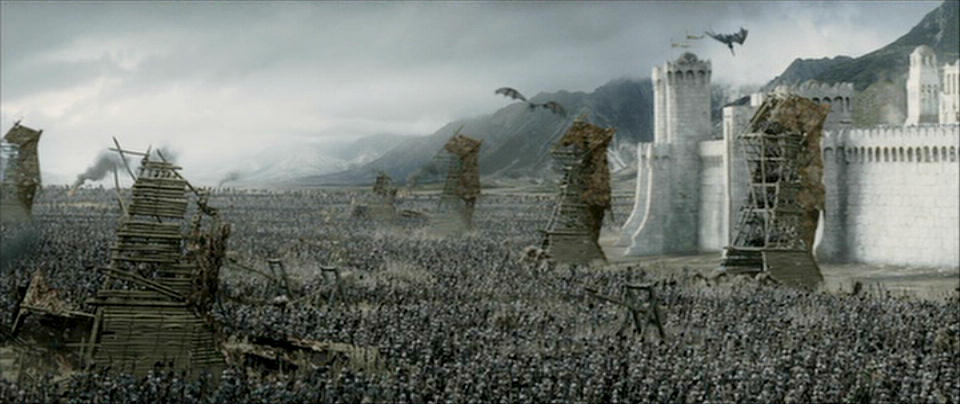
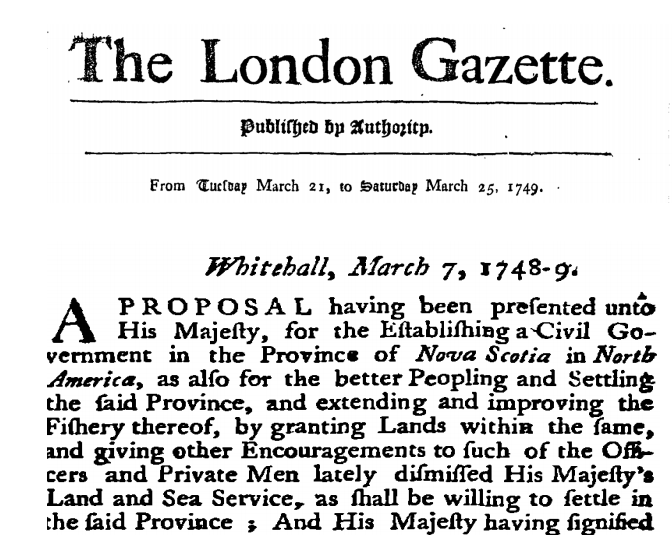
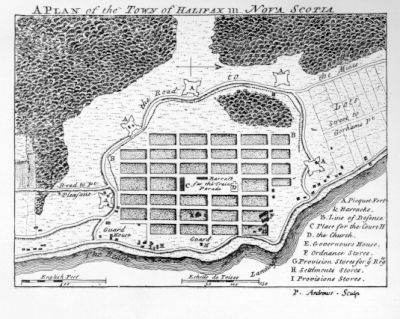
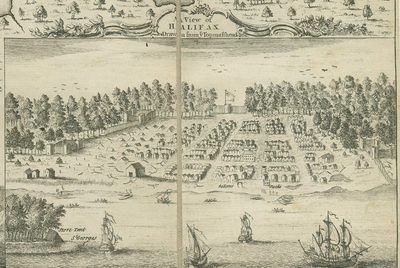
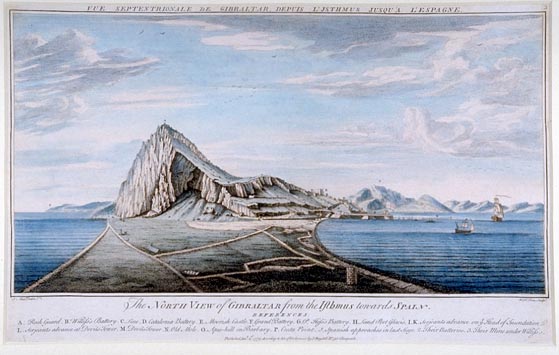
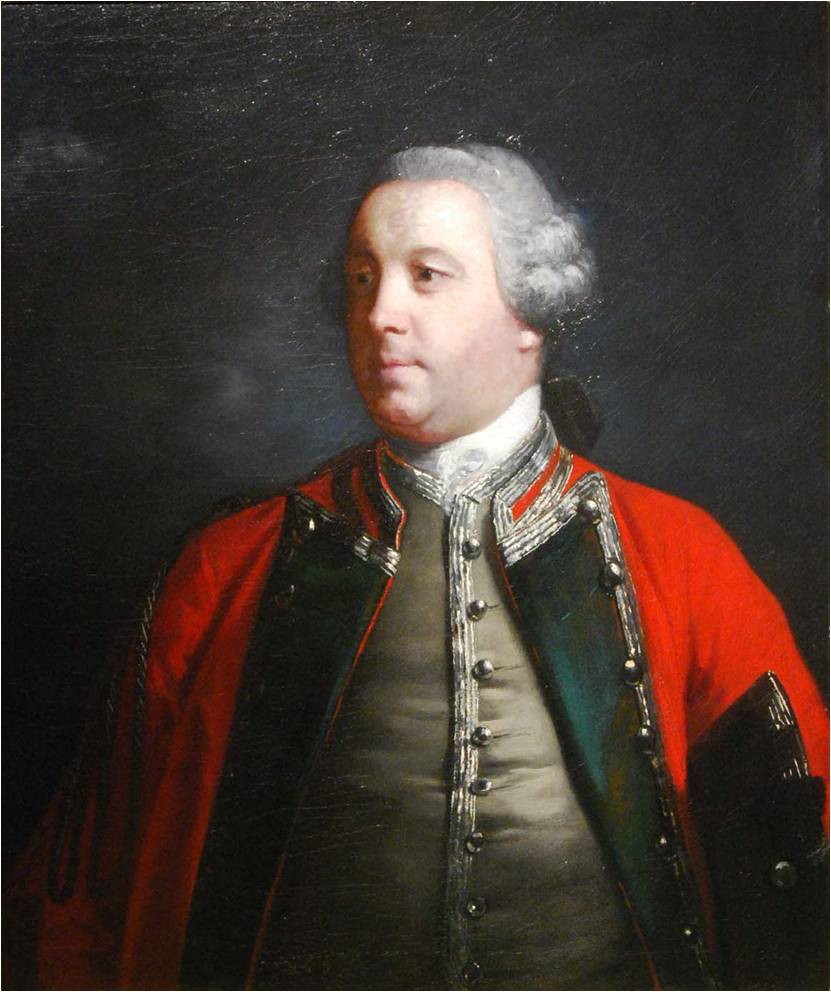


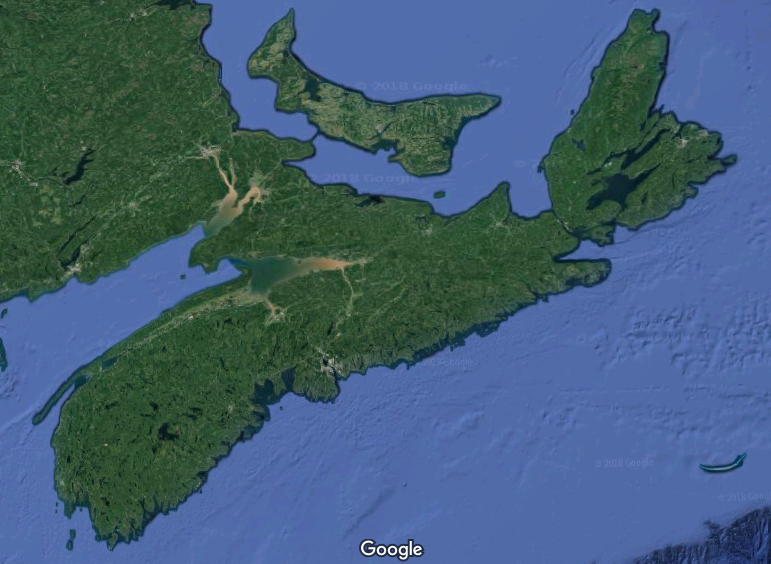
 RSS Feed
RSS Feed